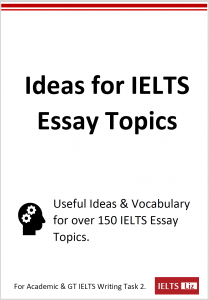The answers to the reading lesson about “News we can trust”. If you haven’t completed this lesson yet, please do so before you look at the answers. To complete the lesson, click here: Reading Lesson
Below are the questions, answers and vocabulary focus for the lesson.
Questions 1 – 7: Complete the sentences using no more than three words from the passage above.
1. Trustworthy news is more important than ever because the world is going through a period of _ _ _ _ _ _ _ _ _ _ and unpredictability.
2. _ _ _ _ _ _ _ _ _ _ are the main source of news for most web users.
3. People often tend to choose the version that most agrees with _ _ _ _ _ _ _ _ _ _ when they are offered differing accounts of an event.
4. Sharing unverified news stories with social media friends contributes to
the _ _ _ _ _ _ _ _ _ _ of false information.
5. Objective investigative journalism can _ _ _ _ _ _ _ _ _ _ the spread of fake news.
6. Investigative reporters try to bring to light the relationship between
apparently _ _ _ _ _ _ _ _ _ _ events.
7. Through their work, investigative reporters try to make it easier for us
to _ _ _ _ _ _ _ _ _ _ the world in which we live.
Answers:
- UPHEAVALS
- the answer does not require the word “global” because this is already indicated in the sentence by the word “world”. Therefore the answer is just one word.
- SOCIAL MEDIA PLATFORMS (SOCIAL MEDIA)
- Both answers are possible.
- Note that brackets indicate other words or answers that are possible. Books often show answers in this way. However, you cannot use brackets for your listening answers. You must choose your answer and be specific.
- Note, one answer option has an “s” and the other does not.
- THEIR OWN VIEWS (THEIR VIEWS)
- Both answers are possible.
- The word “views” must be plural.
- You cannot paraphrase the answer. “Their thoughts” is wrong.
- DISSEMINATION
- The spelling must be correct.
- COUNTERACT
- UNCONNECTED
- MAKE SENSE OF
- You must have the preposition “of”- “to make sense of something”
- The meaning is “understand”.
- “analyse and present” is not a possible answer. The sentence cannot be “for us to analyse and present”. The words in the passage (analyse and present) refer to what investigative journalists do, not what we do.
Vocabulary Focus
The following adjectives are positive in meaning and are used to talk about news or news sources that you can trust:
- trustworthy / reliable / dependable / verified / credible / real
The following adjectives are negative in meaning. They are used to talk about news or news sources that you cannot trust:
- untrustworthy / unreliable / undependable / unverified / dubious / fake
These words can be used in both your speaking and writing tests. They are all topic relevant words when talking about news and media.
I hope you found this lesson useful.
All the best
Liz
Subscribe to get more Lessons by Email





